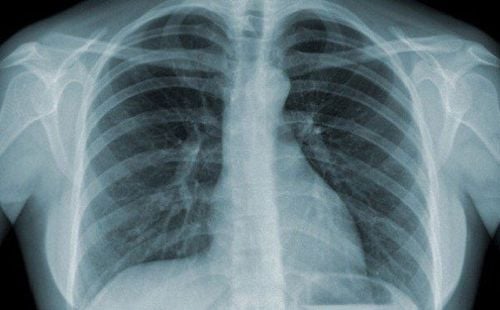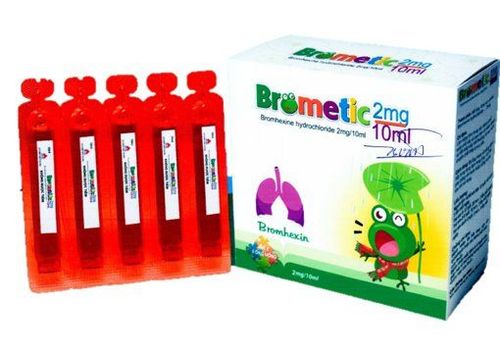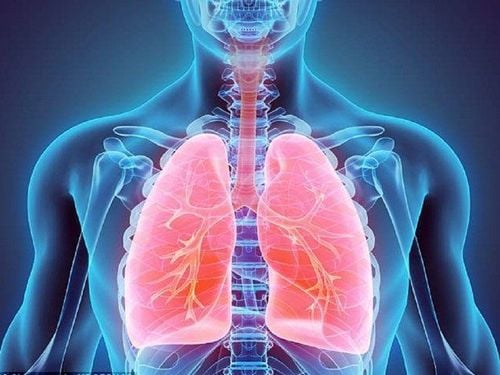This is an automatically translated article.
Article by Master, Doctor Nguyen Ngoc Bach - Department of General Internal Medicine - Vinmec Times City International Hospital
Chronic bronchitis is one of two common types of a serious lung disease called "Chronic Obstructive Pulmonary Disease or COPD". The other form of COPD is called "emphysema". COPD can make breathing difficult. Both types of COPD are usually caused by smoking.
1. Why chronic bronchitis?
Many patients with prolonged cough go to the doctor to be diagnosed: Chronic bronchitis. So how should we understand this condition? Bronchitis is an irritation in the bronchi, the passages that carry air in and out of the lungs. It causes coughing and produces mucus (sputum). In people with chronic bronchitis, this cough lasts for 3 months or longer for 2 or more years in a row.
The most common cause of chronic bronchitis is smoking which causes severe lung damage. People can also develop chronic bronchitis from breathing in toxic fumes or gases.
2. What are the symptoms of chronic bronchitis?
Symptoms include:
Cough the most for 3 days for at least 3 months, for 2 years in a row Coughing or spitting up clear or white mucus Feeling very tired

Bệnh viêm phế quản mãn tính khiến người bệnh cảm thấy mệt mỏi
Feeling short of breath Discomfort or tightness in the chest
3. When going to the doctor, do you need to do more tests?
Your doctor, after asking and examining the patient, can do a number of tests in addition to evaluating the image of the lung lesions with a chest x-ray, but also need to evaluate the function of the lungs, including:
Chest X-ray: X-ray film can detect the causes of cough: bronchiectasis, lung tumor, pulmonary tuberculosis, besides, the doctor will evaluate the extent of damage on the lungs. Pulmonary function test: In this test, you take a deep breath and then blow it out as quickly and as hard as you can into a tube. A machine connected to the tube measures the volume and flow of air you blow and assesses lung function. If your spirometry results are not normal, your doctor will have you do an additional test called a bronchial regurgitation test, where you will be given an inhaled medication. The technician will then measure your respiratory function again. This will help your doctor find out if your problem is caused by chronic bronchitis or you have another lung condition, such as asthma. People with asthma often have a marked improvement in respiratory function, or return to normal, after they use the inhaler. People with chronic bronchitis usually don't have the condition.

Chụp phim X-Quang ngực giúp các bác sĩ tìm ra nguyên nhân gây ho kéo dài
4. What should the patient do to improve his condition?
If you smoke you should stop smoking. This is the single most important thing you can do for your chronic bronchitis. It doesn't matter how long you smoked or how much you smoked. Quitting smoking will slow your illness and help you feel better.
You should also get a flu shot every fall and a pneumonia vaccine at least once. Infections like the flu and pneumonia can damage your lungs. It is important to try to prevent them.
5. How is chronic bronchitis treated?
There are 3 main treatments for chronic bronchitis:
Medications: There are many prescription drugs available to treat chronic bronchitis. Most people use inhaler medications that help open up the airways or reduce swelling in the airways. It may be necessary to use more than 2 drugs at the same time. Sometimes, people need a medicine called prednisone included in the medicine when their symptoms get worse than usual. Oxygen: If the disease is more severe with poor lung function, some people need to use oxygen to breathe.

Một số trường hợp, người bệnh viêm phế quản mãn tính được điều trị bằng Oxy
Vinmec International General Hospital with a system of modern facilities, medical equipment and a team of experts and doctors with many years of experience in medical examination and treatment, patients can rest assured to visit. examination and treatment at the Hospital.
To register for examination and treatment at Vinmec International General Hospital, you can contact Vinmec Health System nationwide, or register online HERE.
SEE MORE
Bronchitis - does allergic rhinitis in children need nebulizers? Is frequent chest tightness, shortness of breath a sign of autoimmune disease? Baby with bronchitis and acute diarrhea: What to eat and what not to eat?














